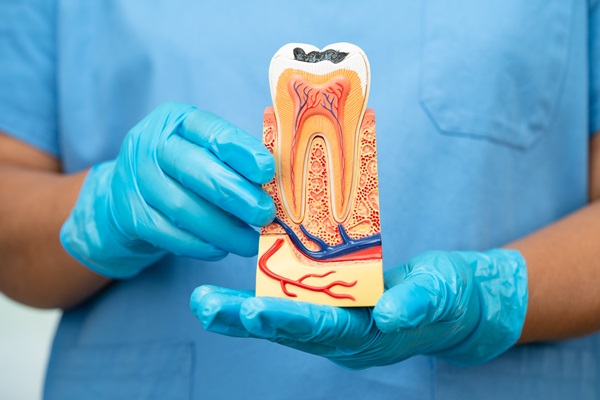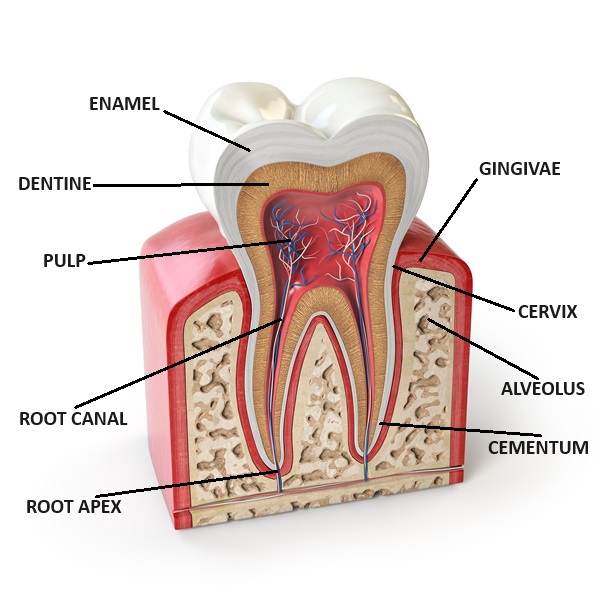Busting Myths and Misconceptions about Root Canal Treatment

Despite root canal treatment having been around for more than a century, it still remains to be one of the most common dental procedures to date. However, even with its stellar reputation in the dental field, it is still shrouded with heaps of misconceptions and myths that cause fear and anxiety in patients.
The truth is root canal treatments have helped many people relieve their pain and save their teeth at the same time. Here at Whitehorse Dental, we want to provide our patients factual information about dental treatments and issues.
So, let’s bust out some of the most common myths surrounding this procedure.
Myth 1: Root Canal Treatment is Extremely Painful
One of the most persistent myths about root canal treatment is that it’s excruciatingly painful. The good news is this is not true. Modern dentistry has made it possible to not endure the pain anymore with the use of local anaesthetics. So, the procedure itself is no more painful than getting a filling.
Local Anaesthetics Ensure Comfort
During a root canal treatment, a local anaesthetic is administered to numb the tooth, gum, and surrounding roots. This ensures that you do not feel pain during the procedure. If you do experience any discomfort during the procedure, don’t hesitate to let your dentist know about it. Most likely, they will provide additional anaesthetic to help make you feel more comfortable.
Post-Procedure Discomfort
Now, discomfort after the procedure is normal, but it is typically manageable with over-the-counter pain medications. You don’t have to worry because your dentist will provide you with instructions on how to care for your tooth post-treatment.
Myth 2: Root Canals Cause Illness
Another common myth is that root canal treatment can cause illness. This misconception likely stems from outdated and debunked studies and is a completely unfounded claim. The primary purpose of root canal treatment is to eliminate infection from the tooth–not induce it. The procedure involves cleaning out the infected pulp (the soft tissue inside the tooth) and sealing the tooth to prevent further infection.
Strict Health Regulations
In Australia, dental procedures are heavily regulated to ensure patient safety. Endodontists, who are root canal treatment specialists, follow strict guidelines to prevent infections and complications.
Myth 3: Tooth Extraction is Better than a Root Canal
Some people believe that extracting a tooth is better than undergoing a root canal. This is not necessarily true. While tooth extraction might seem like a quick fix to a painful problem, it’s often not the best long-term solution.
Root canal treatments have a high success rate, which can remove 99% of the infection and restore the tooth’s health. Plus, you will also get to save your natural tooth. If the root canal treatment is not successful, that’s going to be the time your dentist will advise you on what’s the next best thing to do.
Tooth Extraction and Implants
While tooth extraction is an option if a root canal is not successful, it is more invasive. After extraction, a dental implant or bridge is typically needed to replace the missing tooth, which involves additional procedures and costs. But keep in mind that each case is different from the other.
Myth 4: Root Canal Treatments Are Only Necessary When You Have Severe Pain
This is a misconception. Apparently, not all tooth infections can cause pain. Some infections can be painless yet still require treatment. For example, symptoms like sensitivity to hot or cold temperatures, lingering pain, or a persistent bad taste in your mouth can indicate an underlying issue.
That’s why a thorough dental examination and diagnosis can come in handy to determine if a root canal is needed, and is the best course of action for your situation. Even if there is no pain, an infected tooth can still lead to serious health issues if left untreated.
Sometimes, pain from other conditions, like sinus infections, can still radiate to the teeth–and pain relating to your jaw may not be related to your teeth.
Myth 5: Root Canals Require Removal of Roots
Despite its name, a root canal procedure doesn’t actually mean taking out the tooth’s roots. This is a common misconception relating to that procedure. A root canal procedure itself involves removing the infected or unhealthy pulp inside the tooth. The roots are left intact, preserving the natural structure of the tooth.

In the middle of the tooth is the pulp, which contains nerves and blood vessels. When this pulp is infected due to trauma, gum disease, or decay, it needs to be removed to prevent further infection—that is how a root canal infection is removed.
Myth 6: Root Canal Treatments Are Not Available for Pregnant Women
There is a misconception that pregnant women cannot undergo root canal treatment. This is not true. In fact, untreated dental infections while you’re pregnant can be more harmful than the treatment itself. The reason behind that is because the bacteria from an infected tooth can also enter the bloodstream and potentially affect the baby.
READ MORE: DENTAL CARE TIPS BEFORE, DURING, AND AFTER PREGNANCY
It’s true that root canal therapy can cause discomfort after the treatment, but with anaesthetics, the whole procedure should feel like a breeze. Local anaesthetics used in root canal treatments are safe during pregnancy as long as the dentist is aware of the pregnancy. So, make sure to mention your pregnancy to your dentist to ensure the safest treatment plan.
Myth 7: Crowns Create Root Canal Issues
Some believe that crowns can cause issues that necessitate root canal treatments. Here’s the truth: teeth that have had significant damage often require crowns. And many teeth that require root canal treatment also need crowns to protect the weakened tooth structure.
If a crown is old or damaged, it may need to be replaced to avoid further damage to the crown or tooth. However, crowns themselves do not cause root canal infections.
Sometimes, even after placing a crown, an infection might still develop if the tooth has undergone too much trauma. In such cases, a root canal may be necessary to save the tooth.
Know the Secrets of Root Canal Treatment
Learning about the truth from these misconceptions can help relieve you of your fear and anxiety about root canal therapy. The procedure itself can be helpful to alleviate pain and prevent further damage from happening instead of the other way around.
That’s why at Whitehorse Dental, we ensure to disclose to you factual information about the different dental treatments and issues you need to know. So, the next time you want to talk about getting a root canal treatment, ask our knowledgeable dentists first. Book an appointment or call us at (03) 8838 8820 to discuss your dental problems with an open mind.



